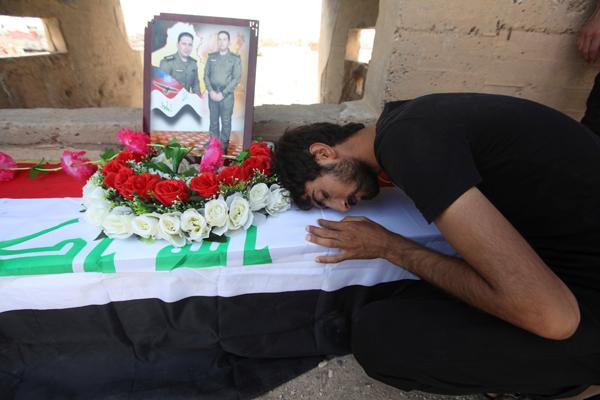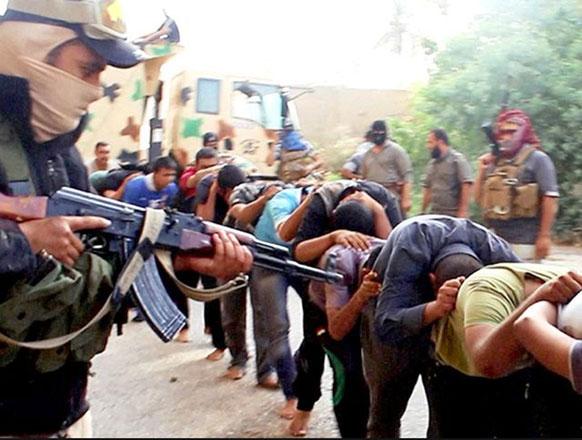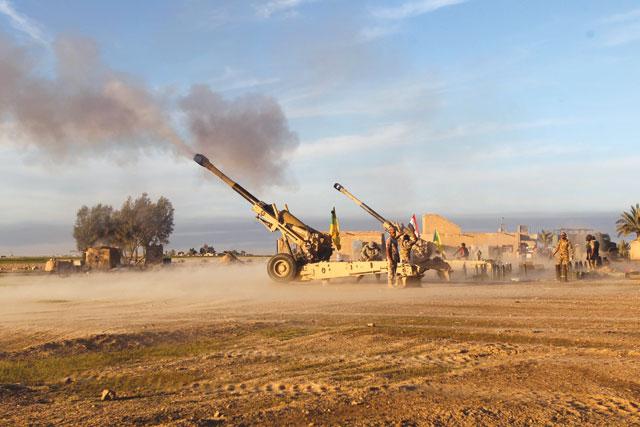You are here
Iraq executions carried out without proper trial, fuelled by vengeance — UN
By Reuters - Aug 23,2016 - Last updated at Aug 23,2016

A man mourns on the grave of his relative at Wadi Al Salam cemetery, Arabic for ‘Peace Valley’, in Najaf, south of Baghdad, Iraq July 27 (Reuters photo)
BAGHDAD — Thirty-six men hanged in Iraq for a sectarian mass killing of soldiers were denied a proper legal defence at their trials and the executions appeared to have been “fuelled by vengeance”, the United Nations said on Tuesday.
The hangings were carried out on Sunday at a prison in southern Iraq, state TV said. Those executed were suspected Sunni Muslim militants convicted in the killings of as many as 1,700 soldiers, mostly Shiite Muslims, after they were taken captive by the Daesh terror group’s insurgents two years ago.
“The individuals who have been executed were convicted only on the basis of information provided by secret informants or by confessions allegedly extracted under duress,” UN human rights spokeswoman Cecile Pouilly told reporters in Geneva.
She said the defendants’ court-appointed lawyer did not intervene during the proceedings apart from a three-minute statement just before the verdicts were delivered.
The United Nations, she said, had urged Iraqi authorities “to ensure that any trial conducted in connection with the massacre respects due process... rather than be fuelled by vengeance. Unfortunately, this [36 hangings] was not the case”.
In a recent report, Amnesty International said one of the hanged men had told its researchers that the defendants were beaten into making confessions, but that his complaint was ignored and not investigated.
“Defence lawyers appointed by the suspects’ families could not meet with or speak to the defendants before the hearing, so walked out, the families said,” Human Rights Watch said in a statement on Tuesday. “Subsequent state-appointed lawyers did not speak to their clients, according to the families.”
The soldiers were killed after Daesh overran Camp Speicher, an ex-US military base near Saddam Hussein’s hometown of Tikrit, in 2014. US-backed Iraqi government forces and Iranian-supported Shiite militias retook the region last year.
The Shiite-led government came under increased pressure from local Shiite politicians to execute militants sentenced to death after a Daesh bombing killed at least 324 people in a Baghdad shopping street on July 3.
Justice Minister Haidar Al Zamili said on Sunday he expected more death sentences to be carried out over killings after Camp Speicher’s fall to Daesh, dismissing UN and human rights groups’ concern over the fairness of the trials.
The truck bomb was the deadliest militant attack since the US-led invasion that toppled Saddam in 2003.
Related Articles
BAGHDAD — An Iraqi court on Wednesday sentenced 24 men to hang over the June 2014 massacre by jihadists and allied militants of hundreds of
NASIRIYAH, Iraq — Iraq on Sunday hanged 36 men convicted over the 2014 massacre by extremists and allied militants of up to 1,700 military r
Iraqi security forces and Shiite militia fighting Daesh terror group took control of the centre of a town on the southern outskirts of Saddam Hussein's home city Tikrit on Sunday, security officials said.

















